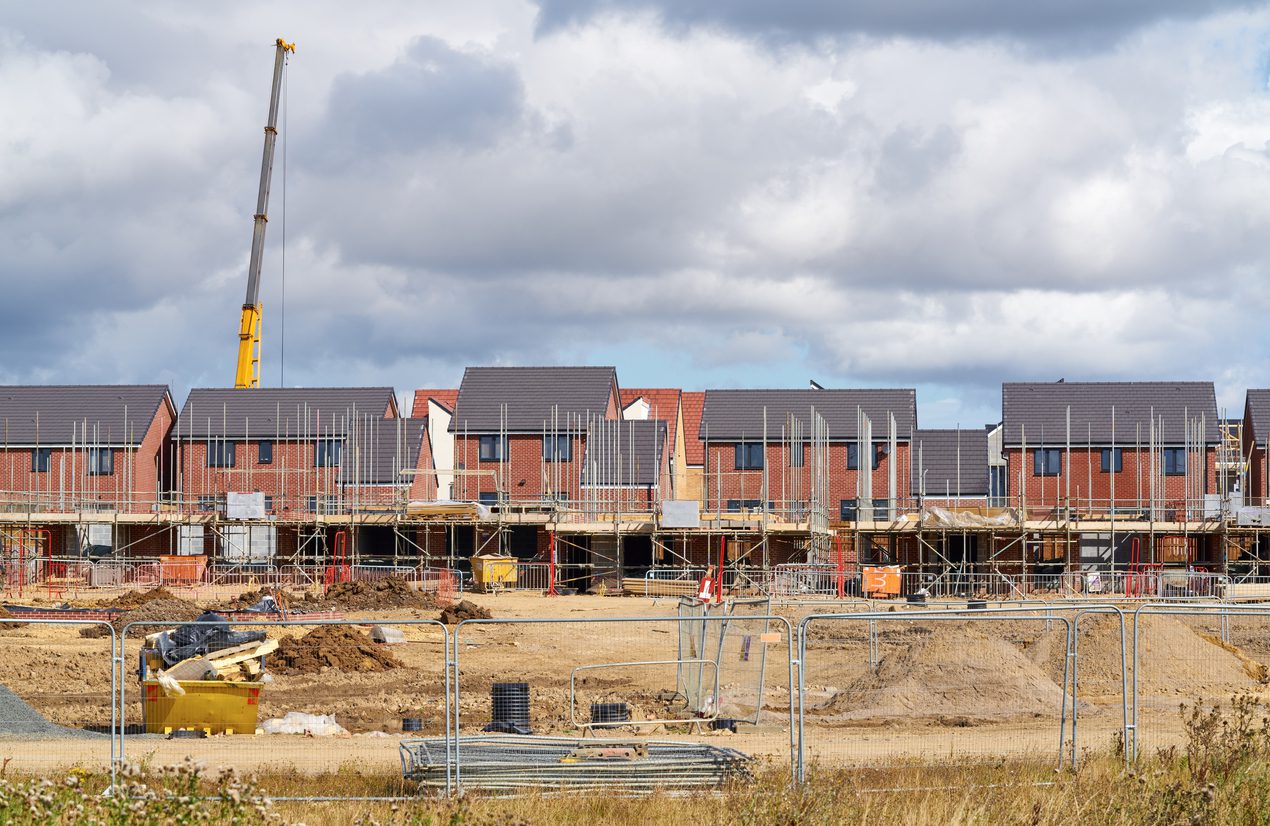It is the cost of land, rather than houses, that is creating the biggest challenge in the UK housing market, according to a report from think tank Civitas.
Landowners have been making extraordinary profits for many years due to the rising value of land, and Daniel Bentley, who wrote Civitas report The Land Question, believes solving this issue could go some way towards alleviating the housing crisis.
The problem, says the report, partly stems from the introduction of the Land Compensation Act of 1961, which gave landowners the right to be reimbursed for any prospective use of the land, in the case of compulsory purchase by the state.
This means that rather than local authorities or public corporations acquiring development sites at prices closer to their “current-use value” – the value of the land based on its current status – the price paid for land is based on a speculative value and therefore significantly higher.
Even without planning permission being granted, the Act gives landowners the right “to any hope value arising from a prospective future planning permission”.
A historic issue
Before this came in, as far back as 1909 ex-prime minister Winston Churchill lauded a controversial land tax to control rocketing prices.

He claimed that landowners “sit back and do nothing” while they benefit from the land value gains made through improvements like local infrastructure. “Every one of those improvements is effected by the labour and the cost of other people … To not one of those improvements does the land monopolist contribute, and yet by every one of them the value of his land is sensibly enhanced … he contributes nothing even to the process from which his own enrichment is derived.”
When the New Towns Act was brought in after World War II, public corporations were able to make compulsory purchases of land at current-use value and use it to build houses on. However, this was brought to an end when Conservative Harold Macmillan came into office and brought in the Land Compensation Act to appease disgruntled landowners.
Land prices have been soaring ever since, along with house prices – around 74% of the rise in property prices between 1950 and 2012 was a result of land price inflation. Most of this rise was seen between 1994 and 2007, when land that had residential planning permission almost quadrupled in value.
“In 2014/15, landowners collected more than £9bn in profit from land they had sold for new housing…The more house prices rise, the more landowners can command for sites suitable for new housing,” says the report.
What’s the answer?
According to Bentley, a revision of the Land Compensation Act would “reframe incentives in the land market by enabling public authorities to acquire development sites at prices closer to its existing use value.” This would encourage landowners to release land rather than holding onto it in the hope of it rising, because they would be taxed on any rises.

In the Autumn Budget, Chancellor Phillip Hammond said that land being “banked” and not being built on by developers (for commercial reasons) could be subject to expanded powers of compulsory purchase. This follows the recent Welsh Government Budget, which considers measures to end “land banking” by bringing in a “vacant land tax”.
And earlier this year, Labour’s manifesto put forward a suggestion for a land value tax as a replacement for council tax, which proved unpopular with many critics who labelled it a “garden tax”. The manifesto said: “We will initiate a review into reforming council tax and business rates and consider new options such as a land value tax, to ensure local government has sustainable funding for the long term.”
Introducing a tax for what many would agree is an unearned income – the rising locational value – is popular with some economists. It could remove the impetus to hold onto land while it gains “hope value” (protected by the Land Compensation Act) before selling it on for a hefty profit, as a tax bill would reduce that profit.
No magic bullet
However, at the moment, there would be nothing to stop landowners from simply stopping development and holding onto the land in the hope of a policy change.
So the report suggests an alternative: “A different way of achieving the same end would be to remove from landowners their ability to withhold land in pursuit of more favourable circumstances and a higher sale price at some point in the future. This could be achieved by enabling the public sector to purchase land that is designated for new housing at close to its existing use value – that is, without regard to the prospective planning permission that it might receive.”
Once bought, the local authority could grant itself planning permission, then sell the land to a developer for a profit that could be put back into the public purse – and put towards building more houses. The local authority could also keep the land in joint ownership and make a long-term income from the gains.
As Phillip Hammond said in his Budget speech, “there is no single magic bullet” to solve the housing crisis.
Civitas says: “Only by reforming the land market, and rewiring incentives for landowners, can we hope to build the homes we need in the places we need them.”









